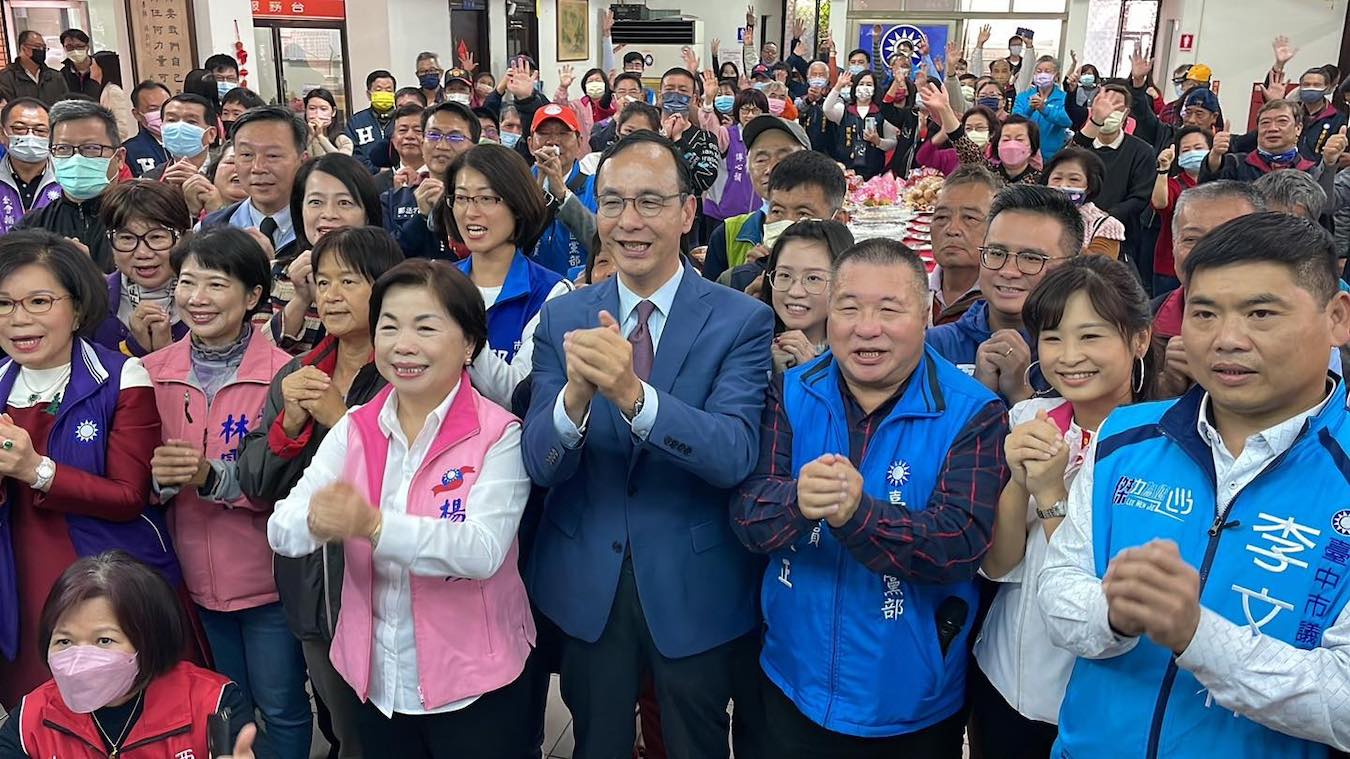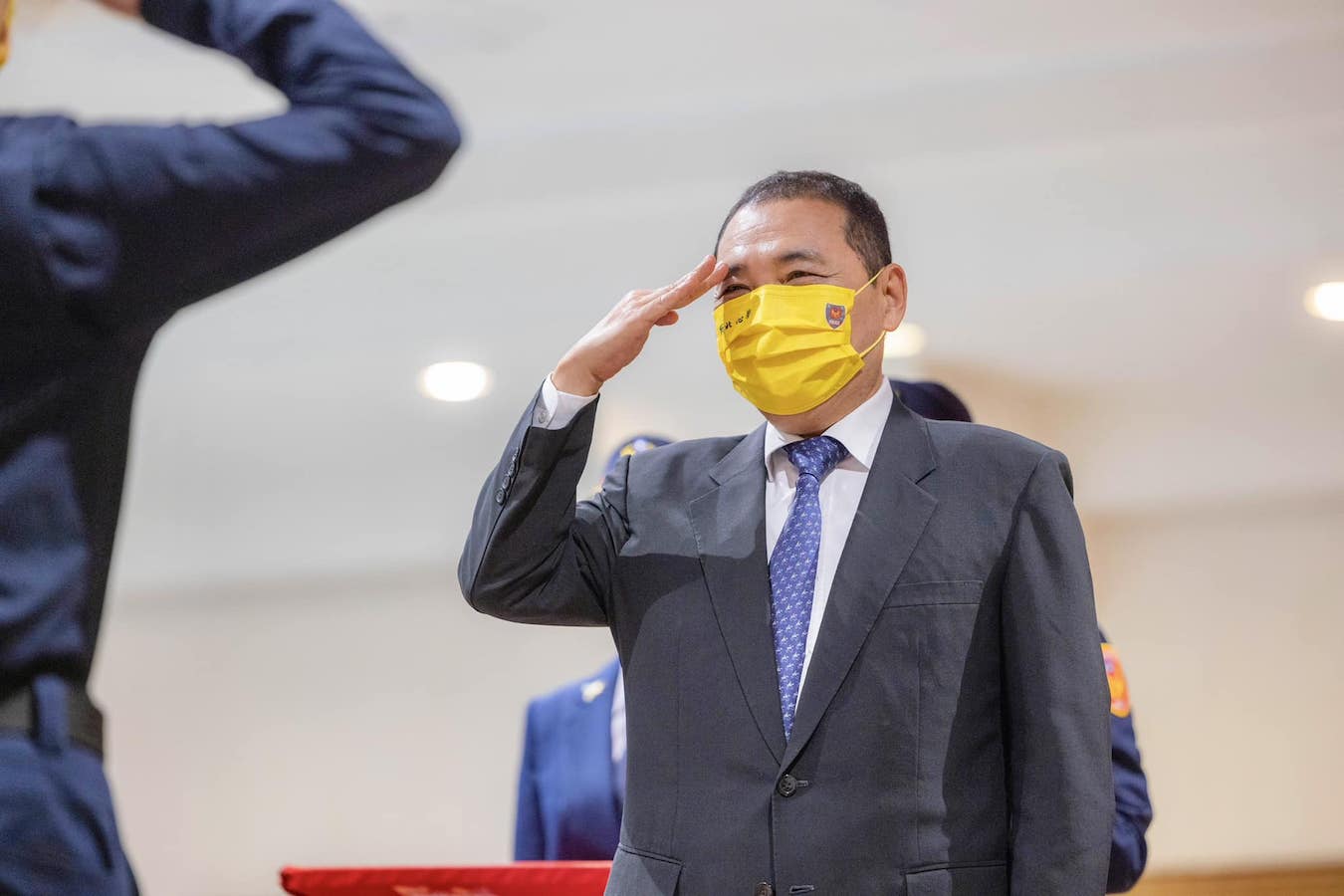by Brian Hioe
語言:
English
Photo Credit: Hou You-yi/Facebook
THE KMT ANNOUNCED late last month that its primary process to decide its presidential candidate for 2024 elections would not take place as an open primary, but through a decision by the party’s standing committee.
This took place shortly after controversy over the composition of the party’s election strategy planning committee, resulting in the committee’s dissolution and the KMT returning to its previous method of picking candidates. In particular, the presence of Hualien legislator Fu Kun-chi and former Tainan city council speaker Li Chuan-jiao–both politicians with histories of political corruption–led to backlash from younger members of the KMT.
This is not the first time that the presence of Fu in leadership positions in the KMT has led to blowback from younger KMT politicians, with Fu and his wife Hsu Chen-wei accused of vote buying in the standing committee elections. However, during this scandal, the KMT leadership also came under fire for favoring individuals from powerful political families.
 KMT chair Eric Chu (center). Photo credit: Eric Chu/Facebook
KMT chair Eric Chu (center). Photo credit: Eric Chu/Facebook
The announcement that the KMT will decide its presidential candidate in a manner circumventing an open vote will probably stoke further dissent and is not likely to help the KMT when it comes to the view that the party does not allow for free and fair competition to determine its choice of best candidate in elections. In all probability, the announcement is a move by party chair Eric Chu to prevent New Taipei mayor Hou You-yi from running.
Hou is widely considered the KMT’s strongest candidate. Moreover, Chu previously vowed when he ran for party chair that he would not seek the KMT’s presidential nomination. But Chu is widely thought to still harbor presidential ambitions.
Consequently, Chu in alignment with the KMT establishment may have taken a high-risk move to shut out Hou. Either the move costs Chu his chances at the presidential nomination or Chu proves successful in blocking Hou.
Namely, Hou performs better with members of the general public in a manner that other KMT candidates do not because of his moderate stances on cross-strait issues. At the same time, with the KMT’s deep blue wing increasingly vocal in past years, this causes Hou to be distrusted within the party by hardliners.
Likewise, the KMT continues to fear the possibility of turncoats rising to the top of the party establishment and revealing their true political views, in the manner of a Lee Teng-hui. That Hou was close with the DPP in the past, before he joined the KMT, does not help this. This fear is also what prevents young politicians that could otherwise be rising stars within the KMT from being promoted, in that their loyalties are viewed as suspect by the party establishment.
Ironically, Eric Chu was once a moderate on cross-strait issues as well. When he became chair of the KMT, Chu initially suggested dropping the 1992 Consensus, realizing its unpopularity with the Taiwanese public. But Chu backed down in the face of opposition, such as from former president Ma Ying-jeou, who likely views the 1992 Consensus as a key part of his political legacy.
 Hou You-yi. Photo credit: Hou You-yi/Facebook
Hou You-yi. Photo credit: Hou You-yi/Facebook
However, Chu was once seen as pro-US, with even rumors in the party accusing him of being an agent for the US. Consequently, when Chu took the chair, he promised that he would change the image of the KMT to rebrand it as a pro-US party, and turn around its pro-China image.
This no longer appears to be the case, with vice chair Andrew Hsia having made several visits to China in the wake of military exercises by China directed at Taiwan. It is unclear if Hsia is acting at Chu’s behest, but if he is, this may be a maneuver by Chu to win the loyalty of deep blue elements of the KMT that might otherwise oppose him. Chu likely needs their backing to fend off Hou You-yi’s formidable challenge. Chu is probably also pressured to politically distinguish himself from Hou. Former president Ma Ying-jeou’s visit to China at this time may also be aimed, at least partly, at pressuring the KMT’s eventual candidate into a specific position on cross-strait politics as well.
It is to be seen, then, as to the future of the KMT presidential primary. Nonetheless, other pan-Blue heavyweights, such as FoxConn founder Terry Gou–who is not technically a member of the KMT at present, but seeks to rejoin the party–may find this process amenable. Namely, this nomination process could potentially create more political opportunities for them, particularly if they position themselves as compromise candidates. Gou, of course, announced today that he would be seeking the KMT’s presidential nomination, while apologizing for leaving the party four years ago, and stating that he would support Hou if he is not nominated. That being said, if Hou’s path to the presidential nomination is likely to be impeded by Chu and the presidential nomination will not be decided through an open vote, Hou cannot be too publicly overt about wanting the nomination. Gou’s announcement may have precisely been aimed at putting Hou in this awkward position.

